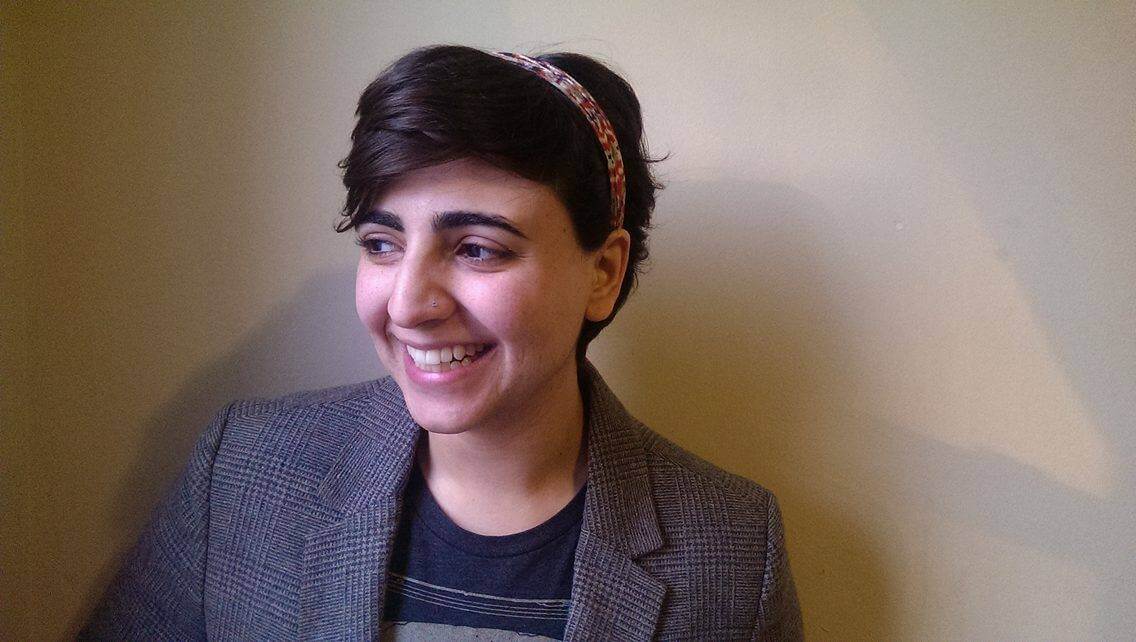
Photo credit: PicNoi
Sometimes, when I have one of my once-in-a-while therapy sessions with my psychiatrist, I feel myself clinging to the things I no longer believe. I understand, in those moments, that sometimes, I want to be in the throws of my illness. Sometimes, I want to be so depressed that I can’t get out of bed, and I remember the old feelings of wanting to sink into the walls, into the cushions. I remember the rattle of my breath, my concentration on only it and how it may or may not end.
Sometimes, when I put food on my plate for lunch, I think about all the lunches I skipped in college. I remember how easy it once was to deny my body what it needed, how the pounds wriggled off of me as I did so. I remember how my curves were smooth, then, how my body pushed itself to its ideal. In those moments, I wish for the self-control I once had. I wish I could slip back into the skin of the person I was then.
____________________________________________________________________
It’s easier to look back and want to be the person I once was, because I know who that person is. That person was so deep in illness that it was all they knew. They weren’t responsible for themselves, in a way, because they were deeply responsible. But I also know how to take care of that person I once was, because that person became me. I got me to here—with help, of course, but nonetheless, I did it. And if I met myself again, the one who was literally crazy, I would know how to care for them.
____________________________________________________________________
What is craziness? What is this five-letter word, C-R-A-Z-Y, that bears the burden of excuses, dreams denied, fear, pain, guilt, shame, hatred? The word that is the synonym for things that we’re too lazy to actually name?
____________________________________________________________________
Part of me yearns to be the person I was once, because change is terrifying. I intimately know what it means to be crazy. I remember pressing my fingers to my pelvic bone and wishing for it to pierce my skin. I remember seeing the curves of someone’s ribcage and being desperately jealous. I remember the feel of the razor blade against my skin. I always sliced quickly and everywhere along my thighs, my shins, my calves, and it would be over before they all even appeared.
When I was crazy, I forgave myself for the anxiety that had me crawling under my bed to hide. When I was crazy, I celebrated the small, daily accomplishments of getting out of bed, showering, taking my medicine. When I was crazy, I could remember the calories of the day and ignore the lessons in class I didn’t bother to learn.
Was it an excuse? There were times where I should have been hospitalized, focused on what was always running through my head. I should have paused, stopped going through the motions, and focused on myself. On the other hand, those motions may have been what ultimately saved me, because I was so stuck on the idea of appearing normal and fine that breaking from them would have meant admitting that I wasn’t.
____________________________________________________________________
The terms “crazy” and “insane” have been reclaimed by those with mental illness. We are fighting against the stigma, against the ableism our society upholds. Use more precise language, we say. Stop using us as shorthand. But what is the threshold for me to say that? What is the threshold for my crazy? ____________________________________________________________________
I’m the type of person that worries about taking responsibility for things. I assign myself blame for five years of abuse; I count off all the ways I was a shit roommate to someone who no longer speaks to me; I remind myself the exact times and ways I let down my mentors. Not taking responsibility is not an option: I’m terrified to wake up one morning and realize I didn’t claim something that was my fault.
I’m not 100 percent sure what this means. It’s partially my guilt over everything, but it often feels like something more. What? In taking responsibility for things, am I inserting myself into a narrative where I’d otherwise not exist? Am I ensuring that the whispers of this is their fault and they go about with no clue don’t happen? Do I think that, in a twisted way, taking the blame absolves me of the need to do something about it?
But does this happen when it really needs to?
I’m fluent in the language of irrational guilt, I texted my now-husband Gabe when we started dating. It’s the truest statement I’ve ever written. I blame myself for anything, from the rip in my jeans to my difficulty selling pitches to not remembering to pick up something from the store. I blame myself for not staying in the sciences and making a difference; I blame myself for not applying to some sort of stable job to stop running through our savings; I blame myself for not really being in my brother’s life anymore.
But how much of this guilt is just a waste of energy? What good is it if I don’t do anything about it? And how much is whatever I’m doing about it disguised with my guilt for whatever I’m not doing?
____________________________________________________________________
Crazy. To go crazy. To be crazy. That’s crazy. You’re crazy. I’m crazy.
Am I crazy enough?
____________________________________________________________________
I started taking antidepressants in the spring of my second year in college. I’d been in an eating disorders treatment program for a few months, and we’d quickly realized in my one-on-one therapy sessions that my eating disorder was a manifestation, and not the root, of my illness. I was in the midst of dialectical behavioral therapy, but it wasn’t enough. I was still sad all the time.
Maybe six months or a year later, I upped my dosage. Then I switched to something else, although whether this was with my current doctor or before, I can’t remember. Then we upped my dosage again. And again. Sometime—either in my fourth year in college, or during the first year of my master’s—I added another one. I desperately tried to keep the emptiness, apathy, and lack of energy away. I didn’t want to be crazy anymore.
Ironically, or not so, what sapped away most of my crazy was ending things with my abuser. (I say not so because my psychiatrist told me this would be the case within twenty minutes of meeting me. It still took me another two years to listen.) Funny how the mind heals itself when it’s given the chance.
So then—am I really crazy? Was I ever really crazy? If so much of my illness went away when I ended things, how could I know they were even real?
____________________________________________________________________
Am I crazy enough?
____________________________________________________________________
When I met the head of my PhD program in November, I told him I needed a medical leave of absence. I told him my depression was getting worse. Looking at it, thinking about it, I don’t know if I was lying or not.
With Gabe 2700 miles away, I felt desperately lonely—but my roommate became one of my closest friends, and I loved my cohort. Still, after living with him for over a year, after getting married just months before, I missed what it meant to come home to him.
It began to take more and more effort to get up in the mornings. I felt no motivation to do my work, classwork, lab work, even writing work. I stopped paying attention during lecture. I dragged myself to lab, fiddled with a paper, a brain, then went home as soon as the clock struck five. I stopped inviting myself out with people, stopped answering texts to hang out. I woke up late, went to class, came back the moment I could. I never bothered to explore and get to know Penn, as if I knew I wouldn’t be staying.
Was I crazy then, too? Why did it go away as soon as I moved to Reno? Why am I happier not making any money and staying home all day, alone, than when I was actually contributing to my family? Why do I feel a panicked sort of joy, stay up late, wake up early, eat lots of food (too much food), have energy that I don’t know what to do with?____________________________________________________________________
If they’re not crazy anymore, why do they keep saying they are? How can they keep saying they are?____________________________________________________________________
Who am I if I’m not crazy? Who am I if I don’t have the deep sadness inside of me, the inability to move my arms and legs, to remember that I’m alive? Who am I without hiding under my bed, my desk, seeking the quiet comfort of a dark space?
Who am I as my medicine lowers in dosage, and my symptoms remain the same? Who am I if I feel no urge to harm myself, not even to dig my fingers into the scar that I once created on my arm just from scratching? Who am I if nonfiction and poetry and the power of words no longer flow from my fingertips like they used to?
If being crazy was once who I was, who am I now?
 Naseem Jamnia is a non-binary Muslim writer who spent many years dabbling in neuroscience. After leaving their PhD program, they’ve focused on their weekly Tuesday Telegrams, editing the gaming section at Women Write About Comics, and playing with their cats. They’ve written for sites such as The Rumpus, The Washington Post, and Cosmopolitan.
Naseem Jamnia is a non-binary Muslim writer who spent many years dabbling in neuroscience. After leaving their PhD program, they’ve focused on their weekly Tuesday Telegrams, editing the gaming section at Women Write About Comics, and playing with their cats. They’ve written for sites such as The Rumpus, The Washington Post, and Cosmopolitan.


Grok Nation Comment Policy
We welcome thoughtful, grokky comments—keep your negativity and spam to yourself. Please read our Comment Policy before commenting.